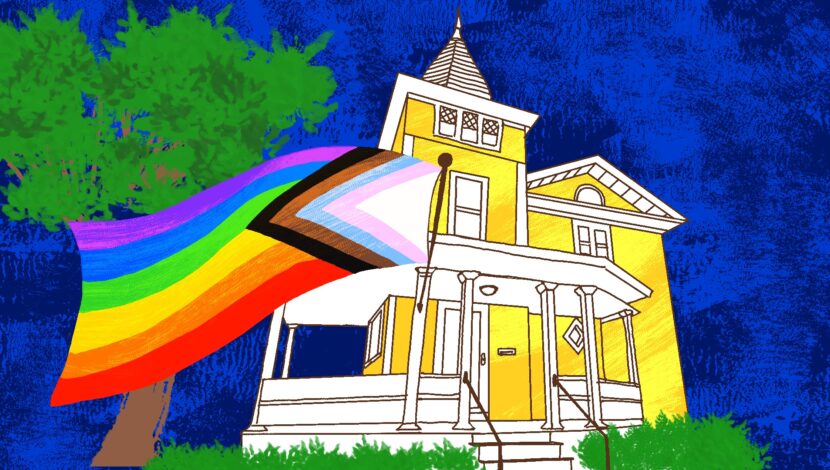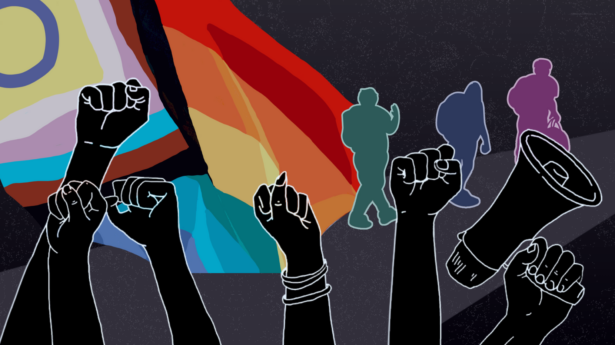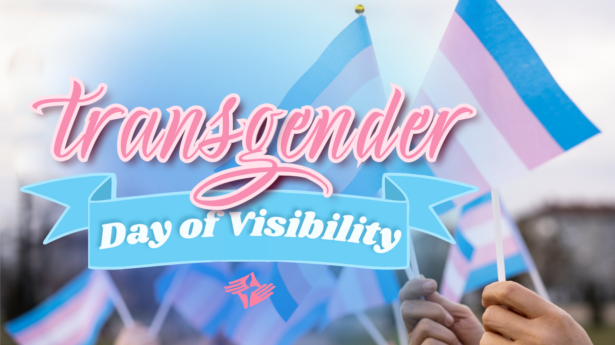The Unitarian Universalist Service Committee advances human rights through grassroots collaborations.
Mutual Aid Against Hate: Pink Haven Coalition

April 14, 2025
At a time when trans, Two Spirit, and gender expansive lives and rights are under immediate threat, UUSC is partnering in coalition with Pink Haven to assist with the urgent task of getting people out of unsafe states to safer ones in the United States. We are providing regular funding and staff support to build mutual aid protection networks, establish safe haven centers, and support individuals as they seek safe accommodation in the eleven states with legislative protections for trans people. UUSC also distributed an additional emergency grant to Pink Haven following the 2024 presidential election.
Laura Randall, Director of Development for Congregation Relations, and Heather Vickery, Coordinator for Congregational Activism, are UUSC staff members deeply involved in the Pink Haven Coalition. They shared more about the needs on the ground today and how our communities are responding.
Q&A
When did UUSC begin partnering with Pink Haven? What prompted this new portfolio of work?
Laura: We started our partnership in January of 2023. This was from a trans-led organization that reached out to us to see if [we] were in a position to accompany people who are fleeing unsafe states trying to get to safer states.
There has been an increase in legislative attacks from 2015—when there were 8 pieces of anti-trans legislation proposed in State Houses—to today, when there are nearly 600. Since Trump’s inauguration, the federal government has come out strong with a great deal of anti-trans policy. The writing has been on the wall for a long time that trans people would be the target of choice, along with immigrants, for the far right. This is straight out of the authoritarian playbook of picking a small, often misunderstood, minority, and convincing large swaths of the population that they are a threat and need to be eradicated. The laws that we are seeing today are echoing this.
Heather: I would just add that working with this community falls in line with the history of UUSC. This new body of work echoes the work of Waitstill and Martha Sharp, it echoes the work of Rev. Dr. Charles Rhind Joy, and the founding of UUSC, of harm reduction and accompaniment in times of rising fascism.
Can you describe what accompaniment looks like in the context of your work with Pink Haven?
Heather: Accompaniment is being with people when you don’t know how it’s going to turn out. So, broad strokes, that’s what we’re getting people ready to do. With trans folks, we don’t know what’s coming next. We just know that they’re not safe right now, and our values call us to provide whatever safety our community can and welcome them. It looks different for different people. It looks different when they go to different places because the resources are different, the risks are different. But basically, we ask folks what they need, we do our best to meet that need, or connect them with folks who can meet that need.
Laura: By resources, we mean that in a really broad way; so yes, money is a really important resource in this work, but so are people with knowledge of the community, especially the queer community; so are people who have interacted with local school districts and know the environment there; people who have access to housing in a variety of ways; people who can help with groceries, drive to appointments, who can literally be a friendly face to meet with or be on text with when someone is new to a community.
What is the situation on the ground today? Have you seen any differences since the new administration has taken place?
Laura: Folks are really, really scared. There are very tangible ways in which their lives are being curtailed or limited or put in danger. There are the very practical things that people are being prevented from doing now, like leaving the country and not being able to re-enter. I’m [also] hearing from families who say, “I’m going to have to detransition, on paper, my teenage child … because we can’t enroll them in school,” and I see how much harm that does to them.
There are all these really practical things, and also deep sadness and fear that is coming from both trans people and their families. It’s so very obvious that the Administration wants to erase them from public life. Even if these things don’t ultimately stand the test of lawsuits against them and they aren’t ultimately upheld, the psychological trauma of your country would prefer that you don’t exist is huge. That is going to carry scars for a very long time.
Heather: And we know that the incidence of suicide goes up when youth don’t have access to gender affirming care and don’t have access to supportive communities. Like Laura said, parents are sitting there and going like, “Do I have to detransition my child? Do we move?” There are no good options, right? We take this child’s home away from them, no matter what. It’s either not a safe home anymore, and they stay—they’re physically in the same place, but they can’t be themselves—or we force them to leave so that they can be themselves.
Laura: And that’s a heavy burden on families too. We’ve seen entire families needing to relocate with very few resources and very quickly. Gender expansive children can feel like it’s my fault that my family is in this situation.
Do you anticipate additional threats in the coming months? How are you planning to respond?
Laura: As we see more insurance companies, hospital conglomerates, facilities, and more institutions—federal or not—start to comply, it’s going to be harder and harder for trans folks to exist as they have been. I imagine all of this is also going to increase the amount of street-level violence against trans people too. When people are given the message, “it’s good and right to discriminate against these people,” more folks are going to take that up.
Heather: Certain clinics that are for the most underserved people—they run on Medicaid and federal funding. Even though all these doctors want to provide gender-affirming care to these folks if they need it, they are put in a difficult position. If they provide the care, they risk losing funding, and then they can’t serve anyone. It just shows that there is going to be a lot of moral injury to everyone. The administration is harming a lot of people right now, whether it’s directly or indirectly.
Laura: We are trying to build capacity and navigate that line between needing a lot of hands and really needing to prioritize security—it’s a fine line to walk. This coalition is made up of extremely creative, extremely dedicated people, who are showing up through burnout, depression, and COVID … and they just keep showing up, which is remarkable to see and is a call to many others in our community who might be feeling some sort of way but not quite sure how they can help.
I especially want to put this call out to cis folks who can be outspoken and be advocates for this community in a way that is much more dangerous for trans folks to be in right now. I want to be extraordinarily careful about speaking on another community’s behalf. We want to make sure we don’t do that, but it’s also important to step up and take that risk in a way that our privilege allows us to.
What motivates you to continue in this work?
Laura: What other choice do we have right now? Our values are not something that we have when it’s convenient. If we mean it, if we say that these values are important to us, then we have to act like it. I keep looking back to the movement leaders of the past as well as the movement leaders who are in coalition with us now, and I’m learning so much from them. The only reason the world has ever improved is because people lived their values like they meant it, and they did something. And it certainly isn’t on me to say, “oh, no thanks, that sounds hard.”
Heather: I’ll often say that it’s selfish for me. I’m saving the world that I want. I’m doing my part to get to the world that I want with the people that I love. It’s part of my faith. I can’t watch people being dehumanized and attacked and not honored as the awesome beings that they are.
If you or someone you know is interested in volunteering, please contact us at development@uusc.org.
Image credit: Micah Bazant

